Related Research Articles

Ruth Chatterton was an American stage, film, and television actress, aviator and novelist. She was at her most popular in the early to mid-1930s, and in the same era gained prominence as an aviator, one of the few female pilots in the United States at the time. In the late 1930s, Chatterton retired from film acting but continued her career on the stage. She had several TV roles beginning in the late 1940s and became a successful novelist in the 1950s.
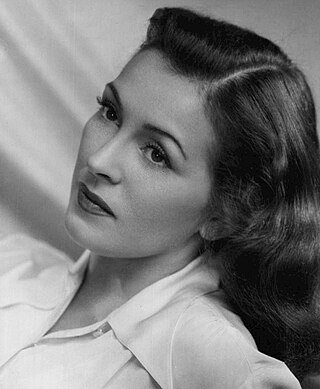
Nancy Kelly was an American actress in film, theater and television. A child actress and model, she was a repertory cast member of CBS Radio's The March of Time and appeared in several films in the late 1920s. She became a leading lady upon returning to the screen in the late 1930s, while still in her teens, and made two dozen movies between 1938 and 1946, including portraying Tyrone Power's love interest in the classic Jesse James (1939), which also featured Henry Fonda, and playing opposite Spencer Tracy in Stanley and Livingstone later that same year. After turning to the stage in the late 1940s, she had her greatest success in a character role, the distraught mother in The Bad Seed, receiving a Tony Award for Best Actress in a Play for the 1955 stage production and an Academy Award nomination as Best Actress for the 1956 film adaptation, her last film role. Kelly then worked regularly in television until 1963, then took over the role of Martha in the original Broadway production of Who's Afraid of Virginia Woolf? for several months. She returned to television for a handful of appearances in the mid-1970s.

No, No, Nanette is a musical comedy with lyrics by Irving Caesar and Otto Harbach, music by Vincent Youmans, and a book by Otto Harbach and Frank Mandel, based on Mandel's 1919 Broadway play My Lady Friends. The farcical story involves three couples who find themselves together at a cottage in Atlantic City, New Jersey, in the midst of a blackmail scheme, focusing on a young, fun-loving Manhattan heiress who naughtily runs off for a weekend, leaving her unhappy fiancé. Its songs include the well-known "Tea for Two" and "I Want to Be Happy".

Kay Francis was an American stage and film actress. After a brief period on Broadway in the late 1920s, she moved to film and achieved her greatest success between 1930 and 1936, when she was the number one female star and highest-paid actress at Warner Bros. studio. She adopted her mother's maiden name (Francis) as her professional surname.
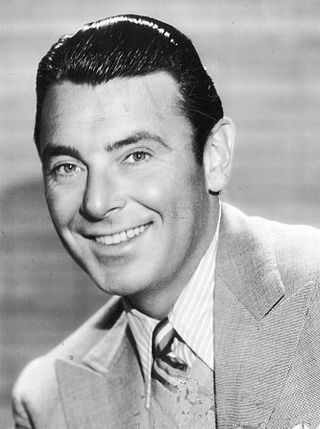
George Brent was an Irish-American stage, film, and television actor. He is best remembered for the eleven films he made with Bette Davis, which included Jezebel and Dark Victory.
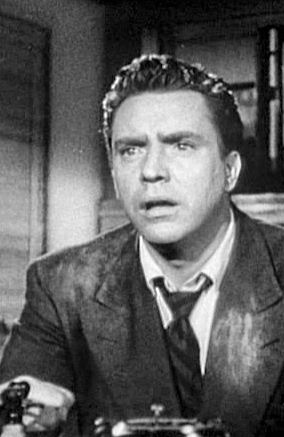
Eamon Joseph O'Brien was an American actor and film director. His career spanned almost 40 years, and he won one Academy Award, two Golden Globe Awards, and two stars on the Hollywood Walk of Fame.

Mary Margaret Wood was an American actress of stage, film, and television. She is best remembered for her performance as the title character in the CBS television series Mama (1949–1957), for which she was nominated for a Primetime Emmy Award for Outstanding Lead Actress in a Drama Series; her starring role as Naomi, Ruth's mother-in-law, in The Story of Ruth (1960); and her final screen appearance as Mother Abbess in The Sound of Music (1965), for which she received an Academy Award nomination and a Golden Globe Award.

Ruth Carol Hussey was an American actress best known for her Academy Award-nominated role as photographer Elizabeth Imbrie in The Philadelphia Story.

The Constant Wife, a play written in 1926 by W. Somerset Maugham, is a comedy whose modern and amusing take on marriage and infidelity gives a quick-witted, alternative view on how to deal with an extramarital affair.

Marilyn Miller was one of the most popular Broadway musical stars of the 1920s and early 1930s. She was an accomplished tap dancer, singer and actress, and the combination of these talents endeared her to audiences. On stage, she usually played rags-to-riches Cinderella characters who lived happily ever after. Her enormous popularity and famed image were in distinct contrast to her personal life, which was marred by disappointment, tragedy, frequent illness, and ultimately her sudden death due to complications of nasal surgery at age 37.
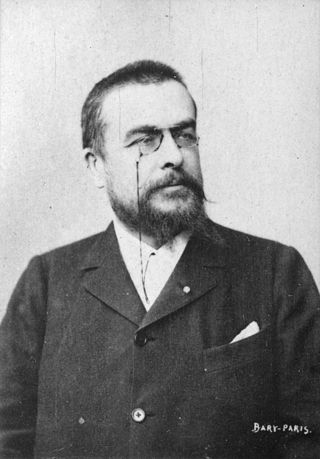
Alexandre Bisson was a French playwright, vaudeville creator, and novelist. Born in Briouze, Orne in Lower Normandy, he was successful in his native France as well as in the United States. Remembered as a significant creator of Parisian vaudeville, in collaboration with Edmond Gondinet, Bisson's 1881 three-act comedy Un Voyage d'agrément was performed at the Théâtre du Vaudeville in Paris.
First Monday in October is a 1978 play by Jerome Lawrence and Robert E. Lee. The title refers to the day on which the United States Supreme Court traditionally convenes following its summer recess.
The Gaiety Theatre was a Broadway theatre at 1547 Broadway in Times Square, Manhattan, New York City from 1909 until 1982, when it was torn down.

Pierre Blanchar was a French actor. He appeared in more than 50 films between 1922 and 1961. Blanchar was married to actress Marthe Vinot, with whom he had a daughter, actress Dominique Blanchar. He played Napoleon in the 1938 British film A Royal Divorce alongside Ruth Chatterton as Josephine. He later appeared alongside Michèle Morgan in the 1946 film Pastoral Symphony.

Winged Victory is a 1944 American drama film directed by George Cukor, a joint effort of 20th Century-Fox and the U.S. Army Air Forces. Based upon the 1943 play of the same name by Moss Hart, who also wrote the screenplay, the film opened only after the play's theatre run. The film version of Winged Victory used many of the Broadway cast, who were brought to Hollywood.
My Sister Eileen is an American comedy stage production, written by Joseph A. Fields and Jerome Chodorov, based on autobiographical short stories by Ruth McKenney. The stories were originally published in The New Yorker and then collected and published as the book My Sister Eileen in 1938.
Ruth Gilbert was an American actress, best known for her role as Alice in the first sound version of Alice in Wonderland in 1931, and as Max in The Milton Berle Show.

Ruth Gloria Nelson was an American stage and film actress. She is known for her roles in films such as Wilson, A Tree Grows in Brooklyn, Humoresque, 3 Women, The Late Show and Awakenings. She was the wife of John Cromwell, with whom she acted on multiple occasions.
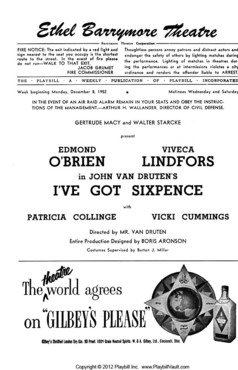
I've Got Sixpence is a 1952 play by the British writer John Van Druten. The plot follows two girls who are roommates and their contrasting relationships with men.

Ada May Weeks Potter Castegnaro, sometimes billed as Ada May or Ada Mae Weeks, or referred to as the Countess Castegnaro, was an American actress and dancer, on stage, film, and radio.
References
- ↑ Bordman, p. 189.